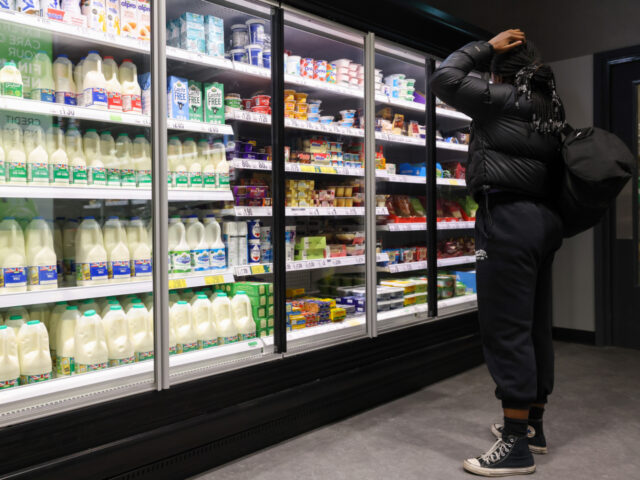Food inflation in Britain hit its highest rate in history in December, as Christmas spending soared while consumers actually took home less.
According to the British Retail Consortium (BRC) and the Nielsen data firm annual food prices rose by 13.3 per cent in December, compared to 12.4 per cent in the previous month. The BRC said that this was the largest inflation recorded since they began tracking food prices in 2005.
BRC Chief Executive Helen Dickinson said per The Guardian: “It was a challenging Christmas for many households across the UK… 2023 will be another difficult year for consumers and businesses as inflation shows no immediate signs of waning.”
To put the numbers in context, this year’s holiday season saw British households spend £1.1 billion more on groceries in December than they did during the same month last year.
While Christmas spending shot to a record £12.8 billion, this was spent on fewer items than last year as a result of the inflated costs. The retail analysis firm said that while overall spending rose by nine per cent, actual sales were one per cent lower than the previous year.
The latest reading of overall inflation, set in November, stands at 10.7 per cent, which while down from 11.1 per cent in October is still at a nearly a 40 year high and over five times the target of 2 per cent set by the Bank of England. Despite the central bank raising interest rates to the highest level in 14 years (3.5 per cent) to clamp down on inflation, soaring gas and energy costs kept the inflationary pressure high.
As a result, British manufacturers saw further declines in production, with the S&P Global/Cips UK manufacturing purchasing managers’ Index falling to a 31-month low, declining from 46.5 per cent in November to 45.3 last month — the fifth month in a row to see a contraction.
Addressing the issue on Tuesday, UK Prime Minister Rishi Sunak said that his government would seek to cut inflation by half by the this year. Yet, it has been noted that this was largely in line with predictions already made by the Office for Responsibility (OBR).
Sunak left the time tables for his other promises — including cutting illegal boat migration — open as he admitted that “many factors are out of my control.” Downing Street later clarified that the pledge to cut inflation by half will be judged from the final quarter of 2023 compared to the last quarter of 2022.
Follow Kurt Zindulka on Twitter here @KurtZindulka

COMMENTS
Please let us know if you're having issues with commenting.